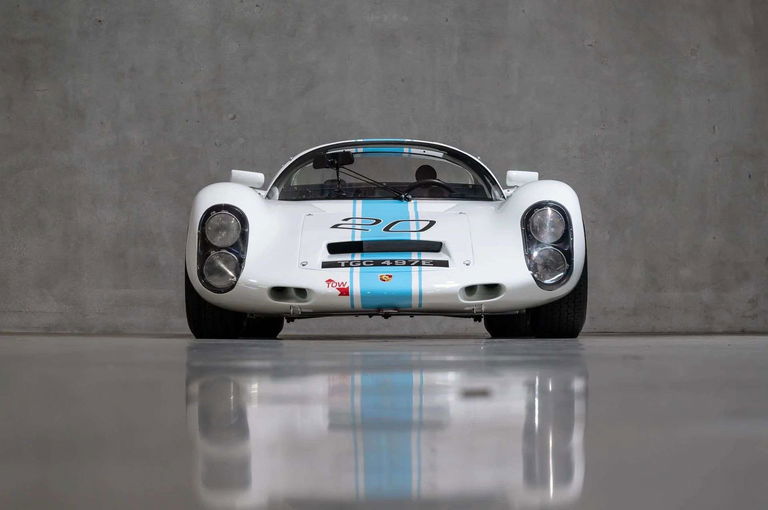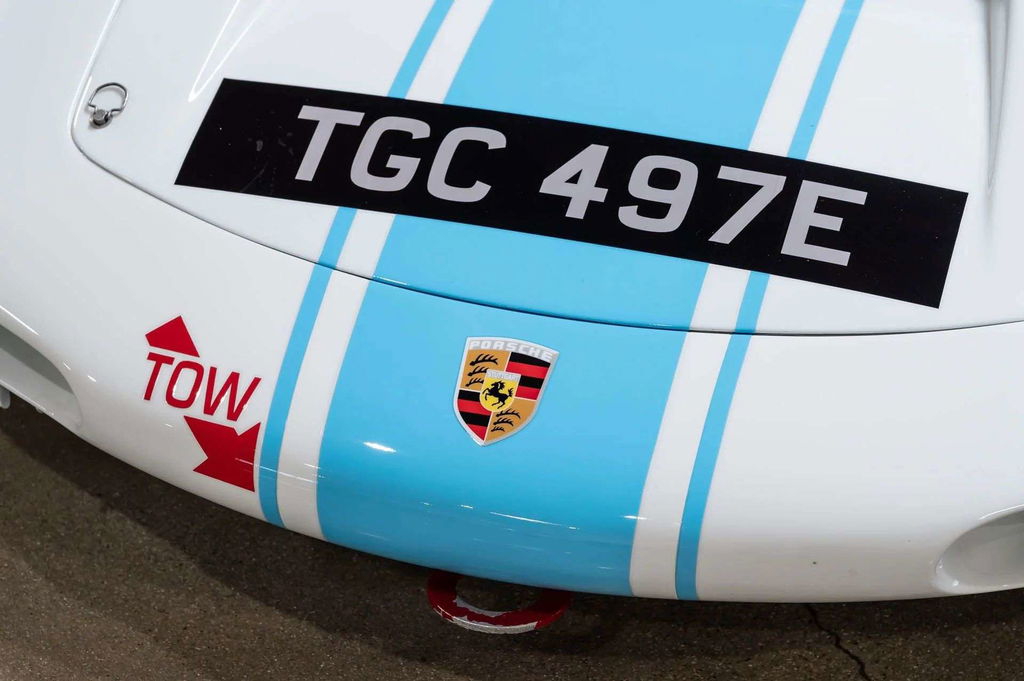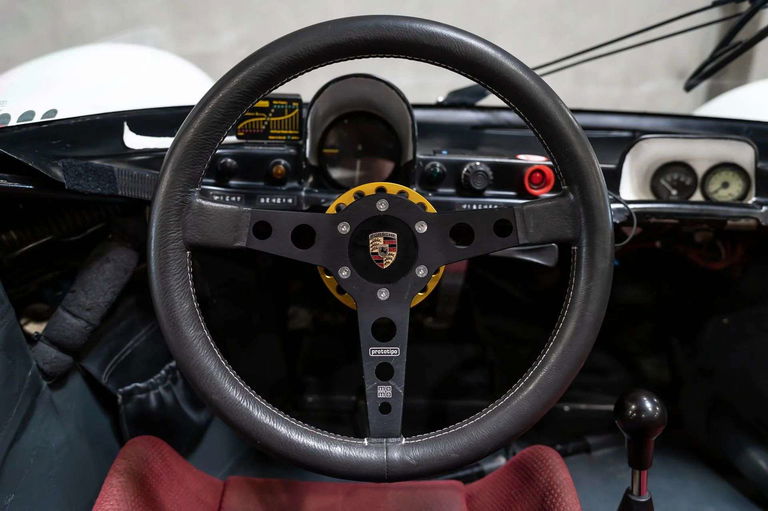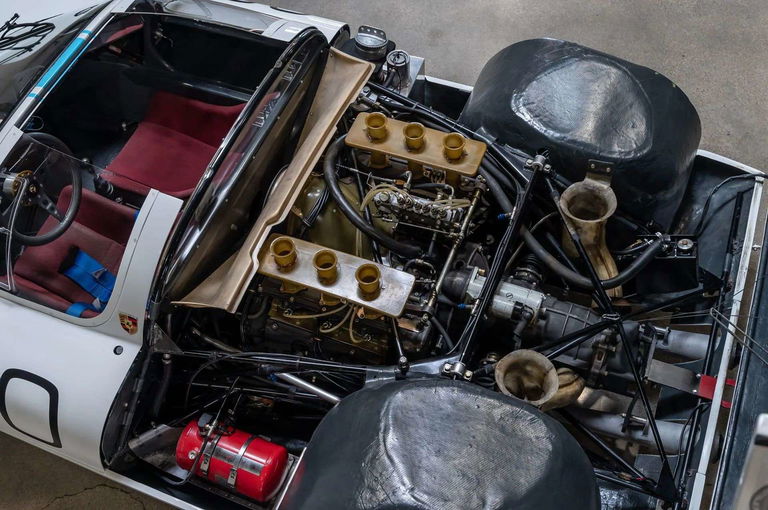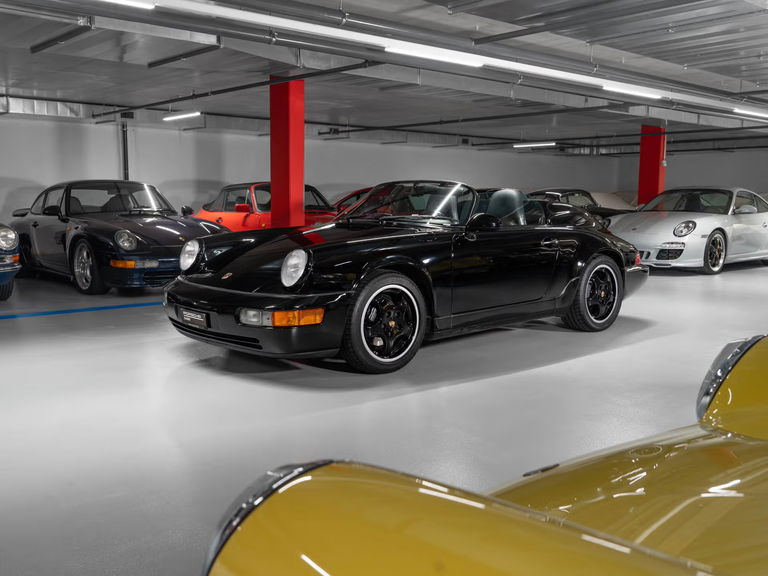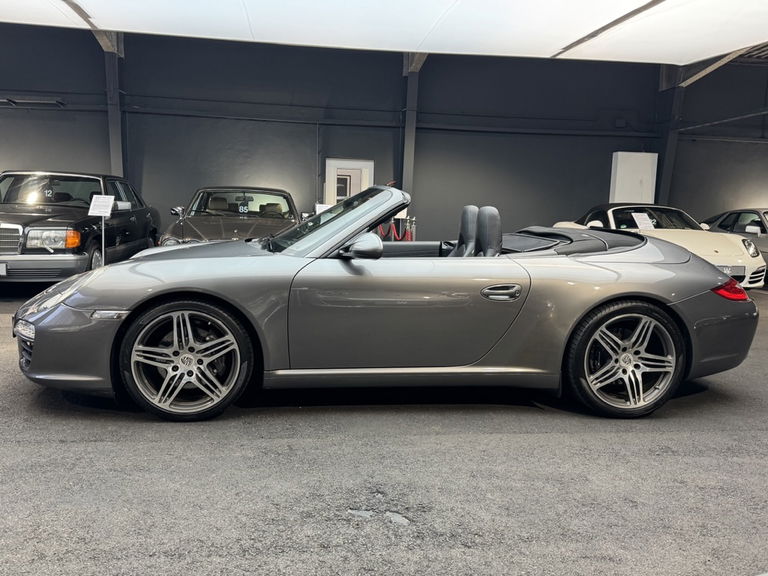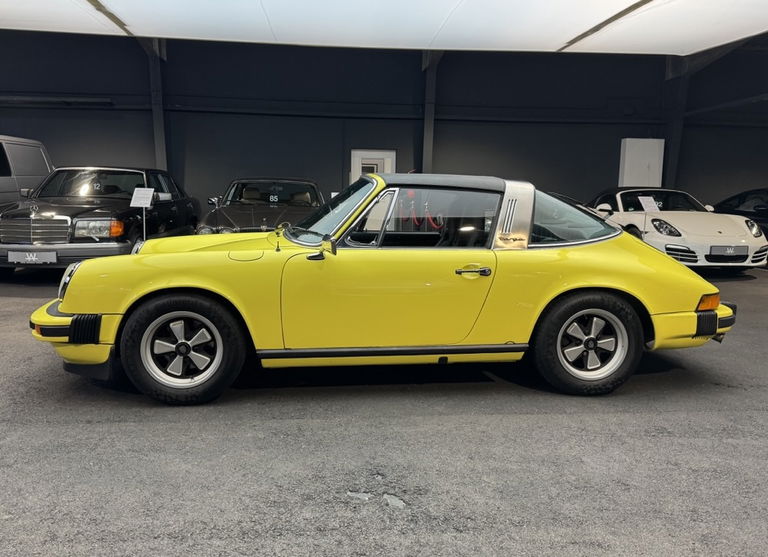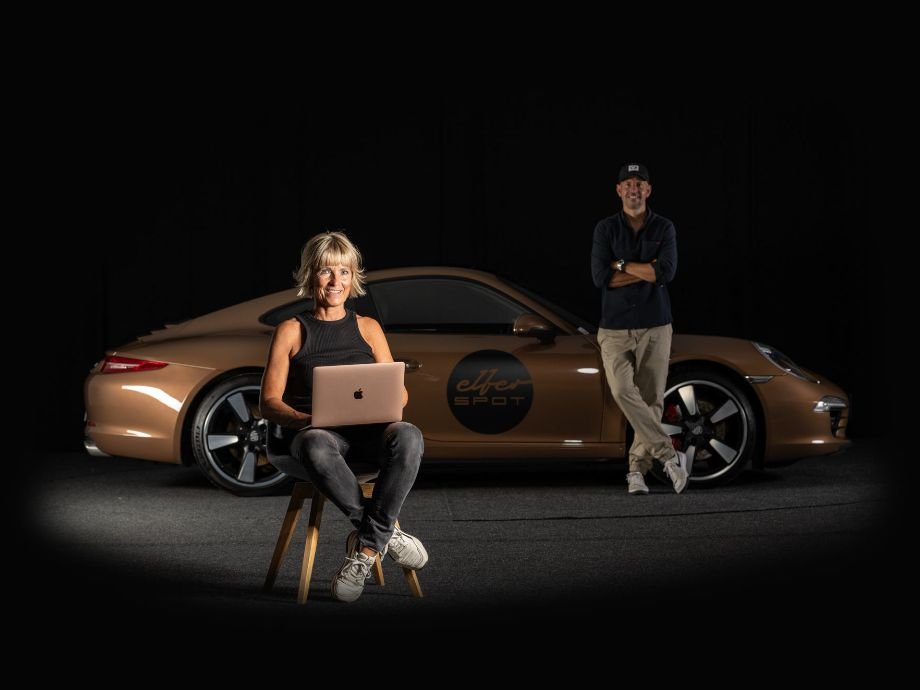The life of a Porsche sports racing prototype in the 1960s was a short one. Every year Porsche had new concepts and designs that needed testing, ideally on the racetrack. The type numbers and names of those engineering test beds are highly familiar to all of us. RS60, RS61, 904, 906, … 910. With the advent of the Porsche Carrera 6 (906) in 1966, Porsche’s racing department had entered a new era focusing on developing its race cars purely for the track, eliminating the possibility of road use. The idea proved to be a success in the ledgers and on the track, with Porsche winning the under 2.0-liter class in the FIA International Championship for Makes.
For the 1967 racing season, Porsche released the 910, a significant evolution of the 906. Built in smaller numbers, it featured a lighter, stiffer frame, a lightweight fiberglass body with a removable roof panel, and improved suspension geometry. For the first time, cast magnesium 13-inch center lock wheels were used on a Porsche race car, reducing unsprung weight. First used in international hillclimbs, the early examples of Porsche’s 910 were produced as open-topped Spyders featuring a Type 771 2.0-liter eight-cylinder engine. For short distances this 270-horsepower engine was ideal but for long-distance events Porsche installed the Type 901/21 2.0-liter 220-horsepower six-cylinder with an impressive specific power output of 111 hp per liter. With such pedigree, the 910 turned out to be highly successful, winning the 1967 Nürburgring 1000 Kms, the 1967 Targa Florio, and the 1967 and 1968 European Hill Climb Championships. By the end of the year Porsche had begun entering the slippery 907 in endurance events, with the 910, especially the six-cylinder version, becoming a popular privateer entry. It was a car that could easily secure class victories in the highly competitive under-2.0-liter sports racing classes around the world.
1968
Said to be sequestered by Porsche as a test vehicle for their emerging Type 907, Porsche eventually sold 910 020, the car presented here, to British privateer and racer William “Bill” Bradley for the 1968 racing season. More experienced and quicker than your typical gentleman racer, Bradley’s William Bradley Racing Team would host fellow Englishman and factory driver Vic Elford on multiple occasions during his epic 1968 racing year — such was the trust that Porsche had in his operation. Oddly, the first competitive event of 020’s career would be without Bradley at the wheel. Borrowed and entered by Escuderia Montjuich in the 1968 Barcelona 6 Hours at Montjuïc Park, John Fitzpatrick and Alan Rollinson shared driving duties, finishing 2nd overall behind a Ford GT40 and first in their class. Elford joined Bradley in 020 at the 1968 Monza 1000 Kms, netting 9th overall among a gaggle of GT40s and 910s. For the next two races, Elford took the reigns solo at a 200-mile event at the Norisring, later taking a class win in July at the Solituderennen at Hockenheim. A DNS and a DNF in the next two events were quickly forgotten with Alan Rollinson back in the car for an overall win at the Coupes du Salon Montlhéry in France that October.
1969 and 1970
With a handful of class victories in 1968, Bradley retained 020, entering it in as many as 14 races in 1969. The season started off just like 1968 with a class win, this time at the prestigious Spa 1000 Kms, where Bradley and Tony Dean took the controls. In June, 020 finished 12th overall and 4th in class at the Nürburgring 1000 Kms. With two successful continental rounds of the International Championship for Makes under its belt, Bill Bradley and 020 finished an impressive 3rd overall with a class win at the 6 Hours de Vila Real in Portugal against a slew of GT40s, 908s, Lolas, and Chevrons. With that, 020 contested the final round of the International Championship, the Zeltweg 1000 Kms at the Österreichring. Swiss sportscar ace Dieter Spoerry joined Bradley in the cockpit for a class podium and to witness the first of many Porsche 917 championship victories. With three International Championship races in its first five for 1969, 020 was entered in a number of smaller, regional competitions to close out the season with a 5th place overall and 2nd in class at the 12 Hours of Barcelona, once again at Montjuïc Park. 910 020’s 1970 season was a brief affair with two entries in the Brands Hatch 1000 Kms and Monza 1000 Kms ending in a DNF and “Did Not Attend” respectively. It is unknown why the 910 did not attend Monza but with its attendance at Brands Hatch, it closed out a three-year racing career, with six World Championship races, a multitude of class victories, and a number of top-class drivers at the helm. Quite the record for a sports racing prototype that began competing after it was already a year old!
Post-competition
Typically, the next chapter of a car like 910 020 would begin with its sale to a successive chain of privateers, each with a little less wherewithal to properly maintain it before being parked in a state of disarray, or worse, drastically modified in a vain attempt to remain competitive against the 12-cylinder and turbo monsters of the 1970s. However, this was not to be 910 020’s fate. With much sympathy for the final team car of his accomplished racing career, Bradley kept 020 in his collection for the next 28 years, only parting with it in 1998, possibly the longest original-owner tenure of any 910. In the late 1980s Bradley set out to restore 020 to the same condition in which he received it and, to that end, enlisted the assistance of Paddy O’Grady, a mechanic of Bradley’s and a former member of Porsche’s customer race department in Zuffenhausen, at the very same time the 910 was being constructed. Finished in 1992 after four years of work, the completely restored 910 020 has traded hands just a few times since, kept in fine fettle to be competitive at Europe’s finest vintage racing events. 910 020 has been invited to and participated in the Goodwood Festival of Speed, the Goodwood Revival, and Le Mans Classic. In 2021 910 020 was sold to a collector in the United States, entering a burgeoning collection of post-war European sports cars. Enjoyed with much the same zeal as Bradley and the subsequent owners who saw fit to attend top-class vintage events, while in the USA it has seen action in two Road Scholars invitation-only events, the 2nd annual Piëch to Peak Colorado road rally in 2021 and the 2021 RS Invitational at Road Atlanta. With maintenance by Road Scholars in Durham, North Carolina, well-known for their attention to detail and fastidious mechanical preparation, and a complete repaint in 2022, it is clear 910 020 is no static museum piece with its unique character best appreciated through use on a closed course or on the open road.




